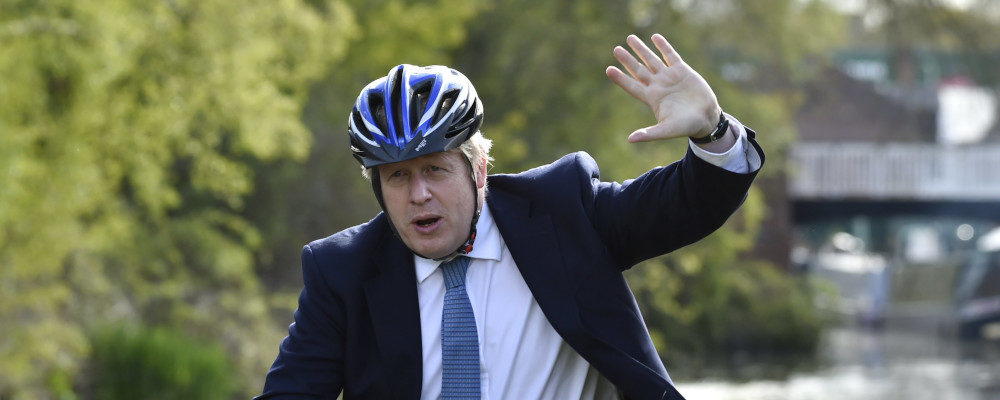State capacity, a rather hard-to-pin-down subject, has become a bit of a hot topic for the narrow niche of the online, right-of-center policy wonk class.
If you just rolled your eyes, you join my husband and no doubt many others in thinking maybe this group is just a bit too niche and maybe this topic is just a bit too theoretical.
What even is state capacity?
MORE SIGNAL. LESS NOISE. THE HUB NEWSLETTER.
Well, Chis Spoke, a recent The Hub contributor, and his brother Matt sought to tackle this subject, broad and ill-defined as it may be, in an online discussion hosted by their Blue Forum this week. They asked me to join Tyler Cowen, a right-of-centre economist celebrity if there ever was one, and Alon Levy, an equally impressive wonk focused specifically on transit infrastructure, to tackle the meaty subject. I was asked to play the more practical politico foil to the others — and play it, I did. Because as important as I think increasing state capacity is, I differ from Cowen and Levy in in terms of how to go about realizing it.
For the purpose of the panel, state capacity was defined as the ability of the state to “get big things done.” My co-panelists both analysed the issue through a policy execution lens and their findings are interesting enough. But to my mind, no government can even contemplate getting big things done without a solid mandate and serious political will, the likes of which only true risk-taking can secure.
There has been much handwringing about how small-ball our politics has become. This is especially true in Canada, and especially true in the midst of a global pandemic where it often feels like politicians cannot see beyond the next hour, let alone the next decade. Visionary, ground-shifting policy programs are in short supply and it is easy to understand why. Risk is not often rewarded in politics. So, the safe bet for anyone trying to get elected is to set up regular polling, pull together a couple focus groups and piece together a hodge podge of small commitments that will win you enough seats to form government.
There’s no shame in this. These small commitments, coupled with decent managerial competence can deliver respectable change for voters. The Harper government’s numerous tax credits, for example, were easy to commit to, easy to execute and legitimately made life more affordable for Canadians. But they didn’t “get big things done.”
While the Trudeau government can count some policy wins, its ambitious focus on “deliverology” seems to have been conveniently left by the wayside as they have learned that new commitments are easier to talk about than making progress on old ones.
Risk is not often rewarded in politics.
The other reason Canadian politicians have not taken big risks over the last few decades is because things have been pretty good.
Moderate growth, low interest rates and relatively low unemployment have muted calls for major policy reform. But times are changing, and the experience of other western countries would seem to indicate that the public is growing intolerant of the political status quo. This realignment in the United States is what led to the election of Donald Trump and the subsequent hyper-aggressive Joe Biden policy agenda.
It is what has caused my co-panelist Tyler Cowen to rethink his economic perspective and coin the term “state-capacity libertarianism.” In the United Kingdom, it is what precipitated Brexit and it is why Boris Johnson can claim an even stronger mandate following byelection victories in long-time Labour-held constituencies last night.
The downsides of globalization and other 20th century consensus policies have not yet been felt as acutely in Canada but there are early signs that the pandemic will lead to an uneven recovery and that more Canadians will feel left behind by our economy and our culture.
There is an opportunity here for political leaders, especially conservatives, to re-think the role the state plays in getting big things done. But this kind of reform and the robust mandates that can be earned by ushering it in will not be accomplished by simply tweaking an existing economic ideology. We don’t need to look as far afield as Johnson or Biden for an example of how bold political leadership can set the stage for serious change.
Our own recent history presents a textbook example of what risk-taking campaigning can do. When Ontario Progressive Conservative leader Mike Harris and his team came up with their 1995 election platform, the Common Sense Revolution, they did not limit their vision by seeking to knit together small groups of voters, cause the least offence possible and hope to eke out a victory and make some incremental change. They went for broke. They strategized that by being bold, explaining to voters what they would do well in advance of the election, repeating it over and over again in the campaign and then delivering on it as quickly as possible, they would not only be successful, but their victory would be more than pyrrhic — they would actually achieve their bold goals. And they were right.
Boris Johnson was not successful because he told the civil service to sod-off.
Agree or disagree with the reforms brought in by the Harris government, no one can argue they didn’t exemplify state capacity defined as the “ability to get big things done.” Harris’ team ran an effective campaign but for the government to actually execute against its commitments, it needed an effective civil service. Importantly, and perhaps paradoxically, the boldness of the policy platform actually facilitated the clarity required for its proper execution.
As recounted in the excellent Cycling Into Saigon (a short book on the Harris government transition to power), David R. Cameron and Graham White describe how in preparing for the possibility that the Progressive Conservatives might form government, the civil service had a crystal clear blueprint in the Common Sense Revolution. This preparation and the transition that followed led to a remarkably effective first few years of government wherein the cabinet and senior public servants worked in lockstep to execute against the bold vision.
In other words, the ability to “get big things done” is not simply the result of effective technocrats being given the space to execute like experts (as Levy argues is important), nor is it the result of economists tweaking their thinking to accommodate public opinion (as Cowen recommends). It requires the clarity of vision that comes from bold, risk-taking leadership and the managerial competence that vision inspires in those responsible for executing it.
There are lessons here for conservatives, from our foreign counterparts when it comes to substance and from our own Mike Harris when it comes to style, if we are willing to listen.
Casual critics of Canada’s ability to get things done tend to vacillate between two complaints. On the one hand, we think everything is too politicized, and we should just leave execution to the experts (the civil servants and their private sector partners) and get out of their way.
On the other hand, we think the civil service is far too bureaucratic, beset by a culture that lacks urgency and with no incentive for efficiency or cost savings and so we pine for a strong man (or woman) to move fast and break things. I confess in my weaker moments I am often sympathetic to both inadequate arguments.
Unfortunately, the solution will not come so easily. Boris Johnson has not been successfully remaking the United Kingdom because he sits back and relies on the so-called experts, nor because he tells the civil service to sod-off. He and those who fought for Brexit took a massive political risk to present a bold alternative vision to the British people and won a series of clear mandates to pull it off.
In Canada, we have the power to increase our ability to get big things done, but we will only have the opportunity to do so if we elect political leaders bold enough to take that risk.




